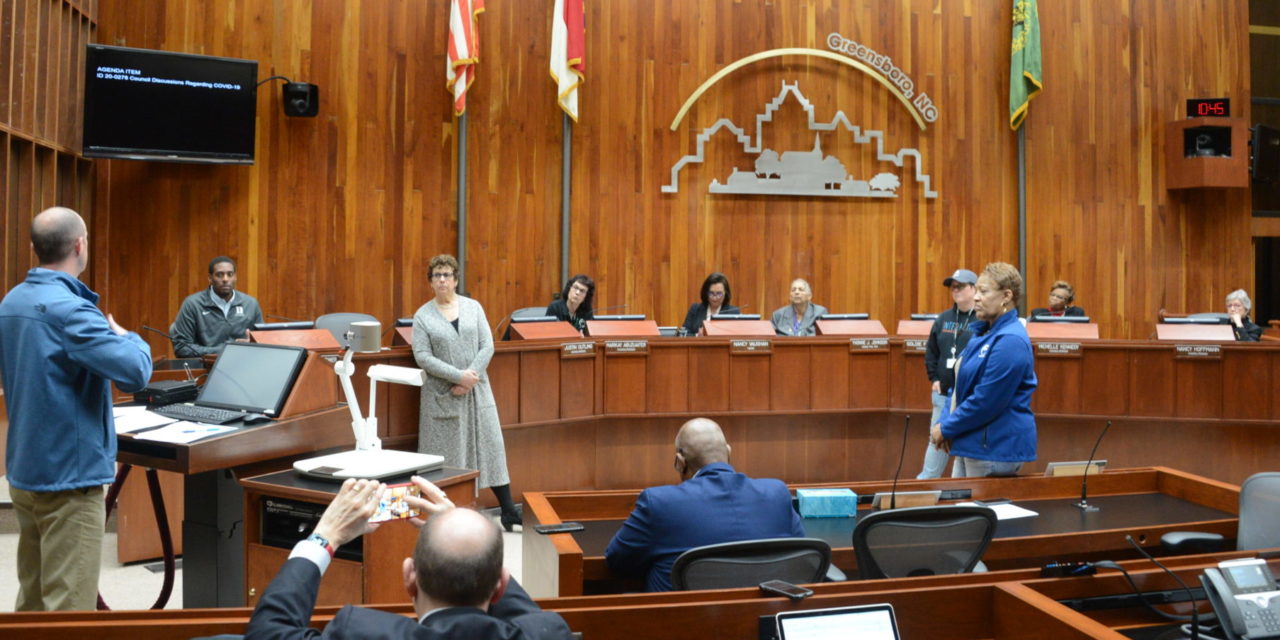In the midst of meetings and events in the city, state and country being canceled, the Greensboro City Council held an emergency meeting at 3 p.m. on Tuesday, March 17, for no apparent reason.
The assumption was that the City Council needed to meet to take some kind of emergency action because of the COVID-19 virus. But no action, emergency or otherwise, was taken.
Earlier in the day, the city announced that all meetings of city boards and commissions would be canceled for 30 days. An hour before the meeting, Gov. Roy Cooper announced that all bars and restaurants in the state were being closed by executive order at 5 p.m. for an indefinite period of time.
The emergency meeting was such a non-meeting that Mayor Nancy Vaughan didn’t even call the meeting to order. The meeting started when City Manager David Parrish started his report to the City Council about the actions the city had taken in response to COVID-19.
Parrish repeated numerous times in his report that city employees who could work from home were being encouraged to do so and that the city was encouraging anyone who could work from home to do so and to avoid unnecessary social contact.
It was a comprehensive report. Parrish and the city staff are clearly doing the best they can in extremely unusual and trying times. But there was nothing in the report that could not have been, and now has been, communicated by email.
One of the main points of Parrish’s report was that everyone needed to heed the warnings from the Center For Disease Control and Prevention (CDC) and avoid unnecessary contact with other people as much as possible, but the fact that the City Council chose to have a completely superfluous meeting flies in the face of that warning.
Some councilmembers did choose not to sit in their seats in an effort to keep their distance from fellow councilmembers, but they could have kept more distance from other people by staying home and not meeting.
The City Council by holding an unnecessary meeting put their own health, the health of the city staff and the health of others who had to attend the meeting at risk.
It is worth noting that at least four members of the City Council are in the high risk group that have been warned to be even more cautious about social contact.
The meeting was well under the 50-person maximum set by Cooper. So although it did not violate the letter of the law, it certainly violated the spirit.


Isn’t that just like government?
Futile, self-serving, pointless and counter=productive.